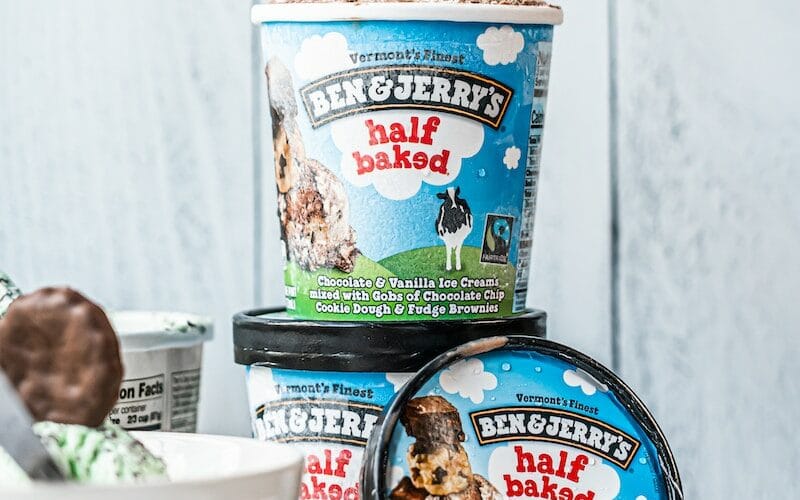Ethical Consumerism’s Impact on Brands

It is no longer enough for companies to simply sell products; they must also align with consumers’ values and ideals. As Harvard Business Review aptly put it, “Ethical Consumerism Isn’t Dead, It Just Needs Better Marketing.” What is the influence ethical consumerism has on brands in the 21st century?
Brands that prioritise ethical practices and align with consumers’ values are not only surviving but thriving in a competitive market. Evolved from a niche concept to a mainstream trend, ethical consumerism continues to shape consumer behaviour and influence the brands in the businesses worldwide. The history of brands is a fascinating journey that spans centuries, evolving from simple marks of ownership to powerful symbols of identity and quality.
A brief overview in the history of brands
The concept of branding can be traced back to ancient civilizations. In ancient Egypt, for instance, craftsmen marked their creations with hieroglyphs to denote origin and quality. Similarly, ancient Roman brickmakers marked their products with unique symbols, serving as early trademarks.
During the Middle Ages, guilds and craftsmen began using distinctive marks and symbols to identify their work. These marks often represented the craftsman’s guild affiliation and served as a guarantee of quality.
With the advent of mass production and the Industrial Revolution, brands began to take on a more prominent role. The rise of factories and standardised products necessitated the need for clear product differentiation. Companies like Josiah Wedgwood and his pottery business in England used distinctive marks and packaging to distinguish their products.
The 19th century saw the emergence of modern trademarks. In 1870, the United States passed the first federal trademark law, allowing companies to register and protect their brand names and logos. This paved the way for the modern branding system we know today.
The 20th century witnessed the explosion of consumer brands across various industries. Iconic brands like Coca-Cola, Ford, and Procter & Gamble became household names, thanks to innovative advertising and marketing strategies. Branding became more about creating emotional connections with consumers.
Brands expanded their influence beyond physical products and into services, experiences, and lifestyle choices. This era also saw the rise of personal branding, where individuals began cultivating and marketing their own personal brand identities through social media and online platforms.
The digital age revolutionised branding by introducing online advertising, e-commerce, and social media. Brands could now connect with a global audience instantly. Companies like Apple, Nike, and Amazon capitalised on this digital landscape to build powerful and recognizable global brands.
In the 21st century, ethical and sustainable branding gained prominence as consumers became more conscious of environmental and social issues. Brands began to emphasise their commitment to sustainability, responsible sourcing, and corporate social responsibility as part of their brand identity.
Modern brands place a strong emphasis on engaging with consumers through social media, influencer marketing, and customer feedback. Loyalty programs and customer experience initiatives have become essential for building lasting brand relationships.
The history of brands reflects the evolution of commerce, marketing, and consumer culture. From simple marks of origin to complex symbols of identity, brands have played a central role in shaping the way we perceive and interact with products and businesses. Today, brands continue to evolve and adapt to the changing needs and values of consumers in an ever-connected global marketplace.

The Rise of Ethical Consumerism: Appealing to People’s Best Selves
Ethical consumerism encompasses a broad spectrum of practices and products that appeal to people’s best selves. From fair trade coffee to purchases that include donations to charitable causes, it is a movement that seeks to combine ethics and shopping. At its core, it is about offering consumers the opportunity to make purchases that align with their values and contribute positively to society. In recent years, combining ethics and shopping expands beyond niche markets and is a well established mainstream concept.
How is ethical consumerism impacting brands?
An increasing number of consumers now want to behave more responsibly and make choices that reflect their environmental and social concerns. This shift in consumer behaviour has not gone unnoticed by savvy brands, leading them to rethink their strategies and embrace ethical consumerism.
Patagonia: Leading the Way in Environmental Responsibility
Patagonia, the outdoor clothing and gear company, is a prime example of a brand that has successfully integrated ethical consumerism into its business model. They have a long-standing commitment to environmental sustainability and social responsibility. Patagonia’s “Worn Wear” initiative encourages customers to buy used clothing and gear, reducing waste and promoting a culture of reuse. Their transparent supply chain and donations to environmental causes resonate with eco-conscious consumers, fostering brand loyalty.
TOMS: The Pioneer of “One for One” Giving
TOMS, a shoe company, pioneered the “One for One” business model, where for every pair of shoes purchased, they donate a pair to a child in need. This socially responsible approach not only aligns with consumers’ desires to make a positive impact but also distinguishes TOMS in a crowded footwear market. The company’s commitment to philanthropy has helped them build a strong and loyal customer base.
Ben & Jerry’s: Social Activism through Ice Cream
Ben & Jerry‘s, the well-known ice cream company, is renowned for its commitment to social and environmental issues. They actively engage in campaigns and initiatives related to climate change, racial justice, and fair trade. By openly advocating for causes and incorporating them into their brand identity, Ben & Jerry’s connects with consumers who want to support businesses that share their values.
The Body Shop: Beauty with a Conscience
The Body Shop has long been a leader in ethical beauty products. They’ve championed animal rights, promoted fair trade ingredients, and campaigned against animal testing in the cosmetics industry. The brand’s ethical stance has not only attracted ethically conscious consumers but has also influenced the beauty industry as a whole to adopt more responsible practices.
Starbucks: Sustainable Sourcing and Social Initiatives
Starbucks, the global coffee giant, has made significant strides in ethical consumerism. They focus on sustainable coffee sourcing, investing in farmer support centres and ethical farming practices. Starbucks also prioritises social responsibility by offering healthcare benefits and educational opportunities to its employees, even part-time workers. These efforts have helped Starbucks maintain a positive brand image and cater to consumers who value socially responsible businesses.
Tesla: Revolutionising the Auto Industry with Sustainability
Tesla, the electric vehicle (EV) manufacturer, has redefined the automobile industry by emphasising sustainability and clean energy. Their mission to accelerate the world’s transition to sustainable transportation appeals to environmentally conscious consumers. Tesla’s success has not only disrupted the automotive sector but has also inspired other automakers to invest in electric and sustainable vehicles.

Ethical Consumerism and Brand Impact
The impact of ethical consumerism on brands is profound and multifaceted, ranging from reputation enhancement to financial gains. Here are some key aspects of this impact:
- Building Trust and Loyalty: Ethical consumerism allows brands to build trust with their customers. When consumers see a brand taking concrete steps to address social and environmental issues, they are more likely to develop a deep sense of loyalty. As a result, these consumers become brand advocates, spreading the word about the company’s ethical practices.
- Enhancing Reputation: A positive reputation is a valuable asset for any brand. Embracing ethical consumerism can significantly enhance a company’s reputation, positioning it as a socially responsible organisation. This reputation not only attracts customers but also appeals to potential employees and investors who share similar values.
- Market Differentiation: In a crowded marketplace, standing out is essential. Ethical consumerism provides a unique selling proposition (USP) that sets brands apart from their competitors. Companies that prioritise ethical practices can capitalise on this distinction to capture market share and drive growth.
- Financial Success: Contrary to the belief that ethical consumerism may hurt a company’s bottom line, research suggests otherwise. Many ethical brands have experienced financial success, often outperforming their less conscientious counterparts. As consumers increasingly prioritize ethical considerations in their purchasing decisions, brands that meet these expectations reap the financial rewards.
- Innovation and Adaptation: To meet the evolving demands of ethical consumers, brands must innovate and adapt. This drive for innovation can lead to the development of more sustainable products, environmentally friendly processes, and socially responsible initiatives, further enhancing a brand’s appeal.
Ethical consumerism is not just a passing trend; it is a fundamental shift in consumer behaviour that is reshaping the business landscape. As more consumers seek to align their purchasing decisions with their values, brands that embrace ethical practices stand to gain a competitive advantage. The complex relation between ethics and shopping will remain a driving force in shaping the future of business. Brands have the chance to better communicate their ethical efforts and create products and experiences that resonate with the ever-conscious consumer as the world continues to change.




